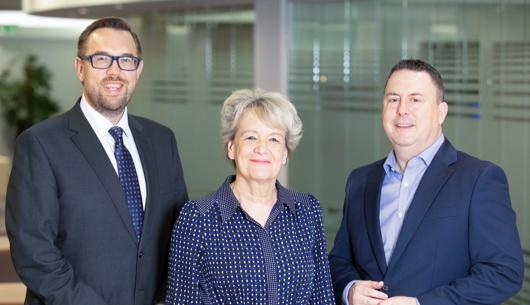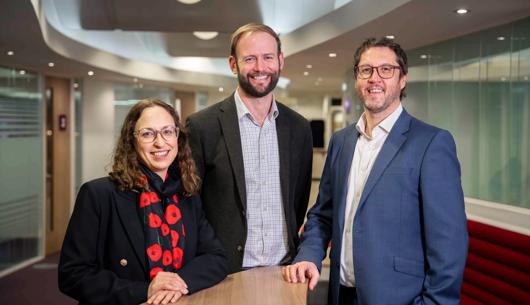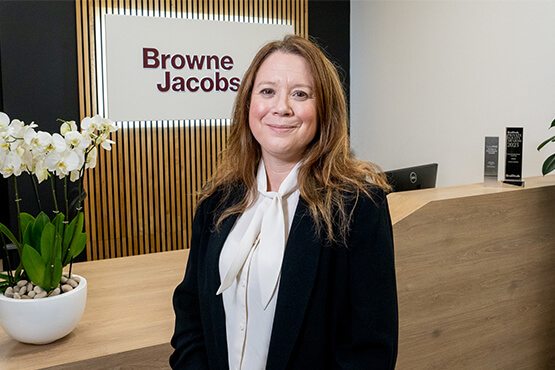The Supreme Court has recently issued a definitive judgment on the definition of sex in the Equality Act 2010.
In doing so, the court emphasised the continuing protections of the Act for women and trans people, meaning that while some specific policies and processes may change, a wider commitment to diversity, equity and inclusion (DEI) should remain steadfast.
In today's visibly diverse world, fostering inclusive environments is crucial to prevent employee relations issues and to support individual growth and success.
It's important to remember that trans women can still file gender discrimination claims against their employers if they face discrimination due to perceived sex or their association with biological women. They can also make claims if they have suffered harassment or bullying in the workplace. Employers are also responsible for ensuring a safe working environment for everyone.
The Chartered Institute of Personnel and Development (CIPD) emphasises the importance of understanding, accepting and respecting diverse needs and beliefs within an organisation. It highlights that creating an inclusive workplace involves balancing conflicting views, and is influenced by an evolving legal and social landscape.
This complexity can lead to varying interpretations of the law and requires careful management of different perspectives, while upholding the rights and responsibilities of all staff.
Employers are not limited to merely meeting legal obligations; they have the freedom to exceed these requirements. The recent judgment does not necessitate sweeping changes, but it does provide an opportunity for employers with strong inclusive cultures to reinforce what inclusivity means within their organisation.
This includes welcoming and including all individuals – regardless of sex, sexual orientation, race, age, disability, religion or belief – and reminding everyone that bullying and harassment are unacceptable.
Employee support initiatives
The CIPD outlines three principles for supporting transgender and non-binary employees:
- Dignity and respect: Ensuring that transgender and non-binary individuals are always treated with dignity and respect in the workplace.
- Humanising and empowering: Involving transgender and non-binary employees in decision-making processes that affect their work experience, thereby empowering them through inclusive policies and practices.
- Proactive and dynamic: Adopting a learning, adapting and solutions-focused approach to transgender and non-binary DEI.
General communications through corporate emails, intranets or webinars can be effective in reassuring employees.
Engaging with DEI focus groups or community groups can provide insights into concerns and recommendations for handling communications and support.
Collaborative platforms like Microsoft Teams are invaluable for bringing people together to discuss key issues and facilitate feedback, supporting organisations in their quest to create progressive and inclusive cultures.
Supporting line managers with information and resources enables them to address concerns and sensitive conversations more effectively. It's crucial to provide support rather than leaving managers to handle these situations on their own.
Wellbeing concerns should be addressed proactively. Remind employees about available support options such as Mental Health First Aid (MHFA), employee assistance programmes (EAP), medical insurance and counselling services. Additionally, signposting to external support charities can be beneficial:
Tips for boosting employee wellbeing
Following the Supreme Court ruling, there are many ways in which employers can support their employees to take charge of their own wellbeing. Tips could include:
- Take a break from your screen and limit your phone usage to make room for other enriching activities.
- Strengthen your social connections by spending quality time with friends and engaging with people who share similar interests. If your workplace doesn't have a community group, it might be a good opportunity to start one. Promoting an existing group can also provide valuable support to your colleagues.
- Explore your artistic side by participating in activities like painting, writing or colouring. Consider organising an event at work that promotes these creative pursuits.
- If you're familiar with mindfulness techniques and have resources or apps that support mindfulness practices, share them with your colleagues to enhance collective wellbeing.
- Engage your senses to help stay grounded: Observe five visible items around you, feel four different textures, listen to three sounds in your environment, smell two different odours, and taste something. This can be complemented by activities such as watching a show or listening to music, which can also serve as a relaxing distraction.
- If you ever feel the need to talk, remember there are resources available such as mental health first aid, employee assistance programmes, counselling services and community groups. These supports are designed to help you navigate through challenging times.
Policy changes and DEI activities
For employers, it may be prudent to review policies to ensure they are up to date with current needs. Establishing community focus groups can provide support and feedback, aligning with the CIPD's three principles and enhancing organisational efforts towards inclusivity.
The initial reaction from the trans community has been one of fear regarding their ability to express themselves. A positive step forward would be to create additional non-gendered spaces, such as toilets and changing rooms.
Further clarity
The Equality Act aims to protect individuals from discrimination and promote equal opportunities. Given the increasing diversity of society since the Act's inception in 2010, a review of the Act might be timely to ensure it remains effective in today's context. Laws are frequently amended, and this judgment could serve as a catalyst for further enhancing the Act's relevance and effectiveness.
Contact

Emma Hughes
Partner
emma.hughes@brownejacobson.com
+44 (0)330 045 2338



































